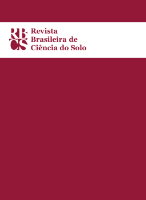
REVISTA BRASILEIRA DE CIENCIA DO SOLO
Scope & Guideline
Exploring Innovations in Soil Science and Cultivation
Introduction
Aims and Scopes
- Soil Fertility and Nutrient Management:
Research on soil fertility management practices, nutrient dynamics, and the application of fertilizers to enhance crop productivity and sustainability. - Soil Conservation and Management Practices:
Studies focusing on soil conservation techniques, including no-till farming, cover cropping, and agroforestry systems aimed at improving soil health and mitigating erosion. - Soil Physical and Chemical Properties:
Investigations into the physical and chemical characteristics of soils, including their structure, water retention, and nutrient availability, often in relation to land use changes. - Soil Microbiology and Ecology:
Exploration of soil microbial communities, their roles in nutrient cycling, and interactions with plants, emphasizing the importance of biodiversity in soil health. - Impact of Land Use Change on Soil Properties:
Research examining how various land use practices (e.g., agriculture, forestry, urbanization) affect soil properties and ecosystem functions. - Digital Soil Mapping and Precision Agriculture:
Utilization of technologies such as GIS, remote sensing, and machine learning for soil mapping and assessment to inform precision agriculture practices.
Trending and Emerging
- Climate Change and Soil Resilience:
Increasing focus on how soil management practices can mitigate the impacts of climate change, enhance carbon sequestration, and promote soil resilience in various ecosystems. - Sustainable Agricultural Practices:
Growing interest in practices that promote sustainability, such as agroecology, regenerative agriculture, and integrated crop-livestock systems, which balance productivity and environmental health. - Technological Innovations in Soil Science:
Emerging themes around the application of technology, including machine learning and remote sensing, for soil monitoring, mapping, and management, indicating a shift towards precision agriculture. - Soil Biodiversity and Ecosystem Services:
A rising emphasis on the role of soil biodiversity in maintaining ecosystem services, including nutrient cycling, soil health, and plant productivity. - Soil Health Indicators and Assessment:
Increased research into developing reliable indicators for assessing soil health, which can guide management practices and policy-making for sustainable land use.
Declining or Waning
- Soil Contamination and Remediation:
Research on soil contamination from heavy metals and pesticides has decreased, possibly due to a shift towards more sustainable agricultural practices and a focus on organic farming. - Traditional Tillage Practices:
There is a noticeable decline in papers focusing on conventional tillage methods, reflecting a broader acceptance and adoption of no-tillage systems in Brazil. - Historical Soil Studies:
Older studies focusing on historical soil classifications and static properties are less common, as newer research emphasizes dynamic processes and management impacts.
Similar Journals
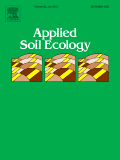
APPLIED SOIL ECOLOGY
Uncovering the Secrets Beneath Our FeetApplied Soil Ecology, published by Elsevier, is a premier journal dedicated to advancing the field of soil ecology through rigorous research and innovative methodologies. With an impressive impact factor and a consistent placement in the Q1 quartile across various categories including Agricultural and Biological Sciences, Ecology, and Soil Science, this journal underscores its significance in the scientific community. The journal's scope encompasses critical areas such as soil biology, microbial ecology, and the role of soils in ecosystem services, aiming to foster collaboration and knowledge exchange among researchers, professionals, and students. The convergence of research efforts from 1994 to 2024 highlights its commitment to maintaining current and relevant discourse within the field. While open access options are not available, the quality and depth of the articles published ensure that the latest findings and discussions are accessible through institutional subscriptions. With a strong focus on empirical studies and applied research, Applied Soil Ecology is an essential resource for anyone interested in the complexities of soil ecosystems and their impact on the environment.

Soil Systems
Fostering Interdisciplinary Collaboration for Soil ManagementSoil Systems, published by MDPI, is a premier open access journal dedicated to advancing the understanding of soil science and earth-surface processes. Launched in 2017, this journal has quickly established itself with a strong presence in the academic community, holding a prestigious Q1 ranking in both Earth-Surface Processes and Soil Science as of 2023. With an impressive Scopus rank in the top 20% of its categories, Soil Systems is an essential platform for disseminating groundbreaking research addressing the challenges and complexities of soil management, its ecological significance, and its role in sustainable development. The journal operates under an open access model since 2018, ensuring maximum visibility and accessibility for researchers, professionals, and students alike. Based in Switzerland, at ST ALBAN-ANLAGE 66, CH-4052 BASEL, Soil Systems encourages contributions that promote interdisciplinary collaboration, innovative methodologies, and the application of findings to real-world issues related to soil health and environmental sustainability.
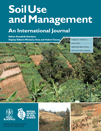
SOIL USE AND MANAGEMENT
Innovating solutions for effective soil management.SOIL USE AND MANAGEMENT is a premier academic journal published by Wiley, focusing on the critical domains of Agronomy, Crop Science, Pollution, and Soil Science. With an ISSN of 0266-0032 and an E-ISSN of 1475-2743, the journal has established itself as a vital resource in the field since its inception in 1985. Operating from its U.S. headquarters in Hoboken, NJ, SOIL USE AND MANAGEMENT boasts impressive Q1 rankings across its relevant categories, indicating its standing in the top tier of research journals. Notably, it is ranked 48th out of 406 journals in Agronomy and Crop Science and holds an 88th percentile position, as well as a commendable rank of 26th out of 159 journals in Soil Science, underscoring its influence and reach. This journal serves as an essential platform for researchers, professionals, and students dedicated to sustainable soil management practices and understanding soil's role in agricultural productivity and environmental health. Although it does not offer Open Access, its rigorous peer-review process ensures the publication of high-quality original research, reviews, and case studies critical for advancing knowledge and practice in the field. This journal is crucial for anyone engaged in soil science and its related disciplines, encouraging innovative approaches to challenges facing soil use and management today.
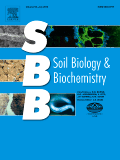
SOIL BIOLOGY & BIOCHEMISTRY
Transforming Understanding of Soil BiologySOIL BIOLOGY & BIOCHEMISTRY, published by Pergamon-Elsevier Science Ltd, is a premier academic journal that plays a pivotal role in advancing the fields of microbiology and soil science. Established in 1969, this esteemed journal has gained recognition for its rigorous publication standards and impactful research contributions, evidenced by its prestigious Q1 rankings in both Microbiology and Soil Science categories for 2023. With an impressive Scopus rank of #3 among 159 in Agricultural and Biological Sciences and #14 among 182 in Immunology and Microbiology, it boasts a notable 98th percentile in its field. The journal offers researchers, professionals, and students a vital platform for sharing innovative studies and insights about soil ecosystems and their biochemical processes, fostering greater understanding and collaboration within the scientific community. While Open Access options are currently not available, the journal remains a cornerstone for those seeking to deepen their knowledge and contribute significantly to soil biology and biochemistry.

EGYPTIAN JOURNAL OF SOIL SCIENCE
Transforming Soil Science in the Heart of EgyptEGYPTIAN JOURNAL OF SOIL SCIENCE is a renowned publication dedicated to advancing the field of soil science, particularly within the context of Egypt and the broader regions of the Middle East and North Africa. Published by the NATIONAL INFORMATION DOCUMENTATION CENTER, ACADEMIC SCIENTIFIC RESEARCH & TECHNOLOGY, this journal aims to disseminate high-quality research and innovative practices related to soil management, conservation, and sustainable agricultural practices. With an emphasis on empirical studies, reviews, and methodologies relevant to soil health and productivity, this journal serves as an essential resource for researchers, professionals, and students alike. Although specific access options are not highlighted, the journal’s commitment to promoting scholarly discourse ensures that important findings within soil science are made available to wider audiences, contributing significantly to environmental science, agronomy, and ecological preservation.
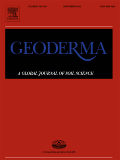
Geoderma
Exploring the Depths of Soil ScienceGeoderma is a leading academic journal published by ELSEVIER, focused on the vital field of Soil Science. With an impressive impact factor and ranking as Q1 in its category for 2023, this journal stands as a prominent platform for researchers and professionals seeking to explore advanced scientific studies related to soil and its relationships with the ecosystem. Covering a wide range of topics from soil formation and characterization to land use and management practices, Geoderma is recognized for its rigorous peer-review process and is highly regarded within the global scientific community, as evidenced by its ranking of #12 out of 159 in the Scopus categories of Agricultural and Biological Sciences and Soil Science, placing it in the top 92nd percentile. With its inception dating back to 1967, the journal continually adapts and converges its content to meet the evolving demands of soil research until 2024 and beyond, providing invaluable insights for students, professionals, and researchers alike.
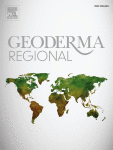
Geoderma Regional
Innovating research at the intersection of agriculture and biology.Geoderma Regional is a premier scholarly journal dedicated to advancing the field of Soil Science. Published by Elsevier in the Netherlands, this journal serves as a vital platform for disseminating high-quality, peer-reviewed research that spans the complexities of soil management, behavior, and the implications of soil processes on environmental sustainability. Since its inception in 2014, Geoderma Regional has achieved an impressive position within the academic community, holding a Q1 ranking in the field of Soil Science, placing it among the top 20% of journals in its category according to SCOPUS rankings. This journal is particularly distinguished for its significant contributions to the nexus between agriculture and biological sciences, reflected in its rank of #33 out of 159 in this field with a commendable 79th percentile. Researchers, professionals, and students alike will appreciate the journal's commitment to open discourse and innovative research agendas as it aspires to enhance our understanding of soil dynamics, addressing critical issues facing our planet.
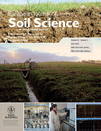
EUROPEAN JOURNAL OF SOIL SCIENCE
Elevating Soil Science: Insights for TomorrowEUROPEAN JOURNAL OF SOIL SCIENCE, published by Wiley, stands as a leading platform in the field of soil science, recognized for its contributions to the understanding of soil ecology, management, and sustainability. With an impressive impact factor and a distinguished Q1 ranking in Soil Science, this journal has recently ranked 23rd out of 159 in its category on Scopus, placing it in the 85th percentile among its peers. Covering a wide array of topics as it converges into the future, from 1994 to 2024, the journal aims to disseminate groundbreaking research and innovative methodologies that address the pressing challenges of soil degradation and environmental sustainability in Europe and beyond. Although it is not an open access journal, the EUROPEAN JOURNAL OF SOIL SCIENCE remains a vital resource for researchers, professionals, and students seeking to deepen their understanding and explore the latest advancements in soil science.

SOIL SCIENCE SOCIETY OF AMERICA JOURNAL
Pioneering Knowledge in Soil Science Since 1976Welcome to the SOIL SCIENCE SOCIETY OF AMERICA JOURNAL, a premier publication in the field of soil science, published by WILEY. With a distinguished history dating back to 1976, this journal has consistently provided a platform for researchers to share innovative findings and insights into soil’s critical role in agricultural and ecological systems. Featuring an impressive Q1 category ranking in Soil Science and positioned within the top 25% of its field according to Scopus, this journal is recognized for its impactful contributions to advancing our understanding of soil dynamics. While not an open-access journal, it remains a valuable resource for academics and professionals alike, with distinguished articles that meet the highest scientific standards. As it enters its converged years from 1976 to 2024, the journal aims to continue shaping the future of soil research, offering valuable knowledge to students, researchers, and practitioners dedicated to sustainable land management and environmental preservation.
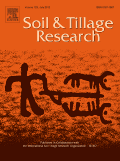
SOIL & TILLAGE RESEARCH
Advancing Soil Science for Sustainable FuturesSOIL & TILLAGE RESEARCH is a premier international journal dedicated to advancing the understanding of soil science and tillage practices through high-quality research and insightful reviews. Published by Elsevier and based in the Netherlands, this esteemed journal boasts impressive impact metrics, being ranked in the Q1 category across multiple domains including Agronomy and Crop Science, Earth-Surface Processes, and Soil Science, reflecting its pivotal role in the academic community. With an H-Index that underscores its citation impact and a Scopus ranking placing it in the top percentiles of its field, SOIL & TILLAGE RESEARCH serves as a vital resource for researchers and professionals focusing on sustainable agricultural practices, soil management, and environmental conservation. This journal provides a platform for open dialogue and dissemination of knowledge that shapes future research directions and policy-making in land use and sustainable agriculture.